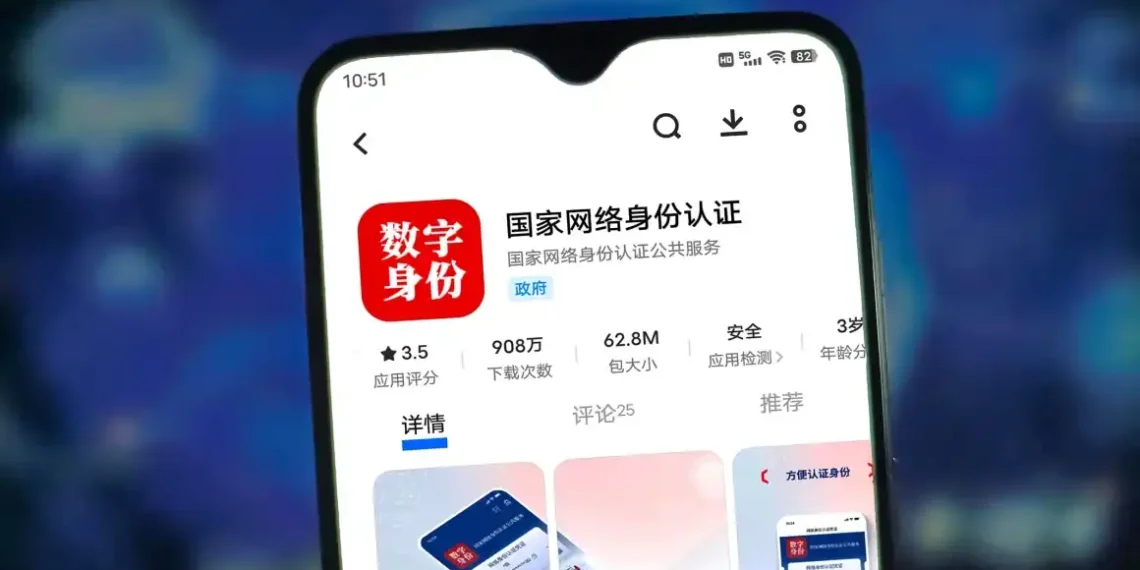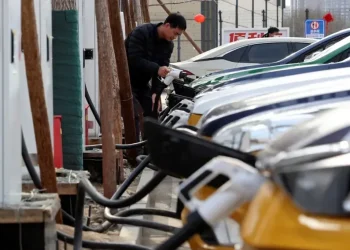China’s New Internet ID Tightens Grip on Online Freedoms, Critics Warn
China is about to roll out a new layer of internet control — one that critics say could take digital surveillance to an entirely new level.
Starting mid-July, the Chinese government will begin implementing a centralized national internet ID system, designed to link every user’s identity across all websites and apps. It’s being promoted as a way to improve data security and simplify online verification. But to many experts, it looks more like another powerful tool to track and silence dissent in one of the most heavily monitored online environments on the planet.
“This is more than just a surveillance tool — it’s the foundation for digital totalitarianism,” says Xiao Qiang, a research scientist focused on internet freedom at the University of California, Berkeley.
What Is China’s New Internet ID?
Until now, Chinese users were required to verify their identity separately on each social media platform or website. But under the new system, users will receive a state-issued digital ID that allows them to sign in across multiple platforms with a single login.
According to the government, the internet ID will “protect citizens’ identity information and support the healthy development of the digital economy.” Officials say the system is voluntary — for now — and already over six million people have signed up.
But many experts question just how optional it really is.
“Voluntary” — Until It’s Not
“The government can always incentivize adoption by tying it to conveniences,” said Haochen Sun, a law professor at the University of Hong Kong. “What starts as voluntary could become hard to opt out of.”
Sun also raised alarms about security risks. Centralizing so much personal data into a single system makes it a prime target for hackers or foreign actors, he warned. He pointed to a major 2022 data leak in which personal records for nearly one billion Chinese citizens were exposed after a police database breach.
Silencing Dissent by Design
China already operates one of the most sophisticated censorship machines in the world, and under President Xi Jinping, the country’s digital space has only grown tighter. An army of censors works around the clock to scrub dissenting content, flag users, and disable accounts that challenge the Communist Party narrative.
Critics fear that a unified internet ID will give the government the ability to instantly erase a person’s digital presence across multiple platforms — no matter where they post or what app they use.
“This is a state-led system capable of real-time tracking, blocking, and punishing users,” said Xiao. “It’s not just centralized identity — it’s centralized control.”
Origins of the Internet ID System
The idea for the national internet ID began in early 2024, when Jia Xiaoliang, a senior cyber police official and delegate to the National People’s Congress, proposed it during the legislature’s annual meeting.
By July, the government had opened the proposal for public feedback — a routine step in China’s policy process. But the backlash was swift.
Lao Dongyan, a respected law professor at Tsinghua University, likened the system to “installing a surveillance device on every individual’s online activity” in a post on Weibo. Her post was deleted, and her account suspended for three months.
Since then, public criticism has largely disappeared — a reflection, experts say, of how censorship clears the path for controversial policies to take hold quietly.
What Happens Next?
Hundreds of Chinese apps have already begun testing the new ID system ahead of its official launch in July. The Ministry of Public Security insists the goal is to offer a “secure, convenient, authoritative and efficient” way to verify identities online.
State media has also jumped in, calling the ID a “bullet-proof vest for personal data”, and claiming it will reduce the risk of identity theft or leaks.
But digital rights advocates aren’t convinced. Shane Yi, a researcher at China Human Rights Defenders, says the system will allow authorities to track people from their first click online — what she calls “point zero.”
“This gives the government sweeping power to do whatever it wants, whenever it wants,” she warned.
The Bigger Picture
China’s digital policies are increasingly being watched by other authoritarian-leaning governments interested in adopting similar centralized control models. Experts say China’s approach may influence global norms around internet governance, privacy, and the right to anonymity online.
As the mid-July implementation date draws near, the country’s billion-strong online population may be on the verge of losing the last fragments of digital privacy it had left.
This article was rewritten by JournosNews.com based on verified reporting from trusted sources. The content has been independently reviewed, fact-checked, and edited for accuracy, neutrality, tone, and global readability in accordance with Google News and AdSense standards.
All opinions, quotes, or statements from contributors, experts, or sourced organizations do not necessarily reflect the views of JournosNews.com. JournosNews.com maintains full editorial independence from any external funders, sponsors, or organizations.
Stay informed with JournosNews.com — your trusted source for verified global reporting and in-depth analysis. Follow us on Google News, BlueSky, and X for real-time updates.














